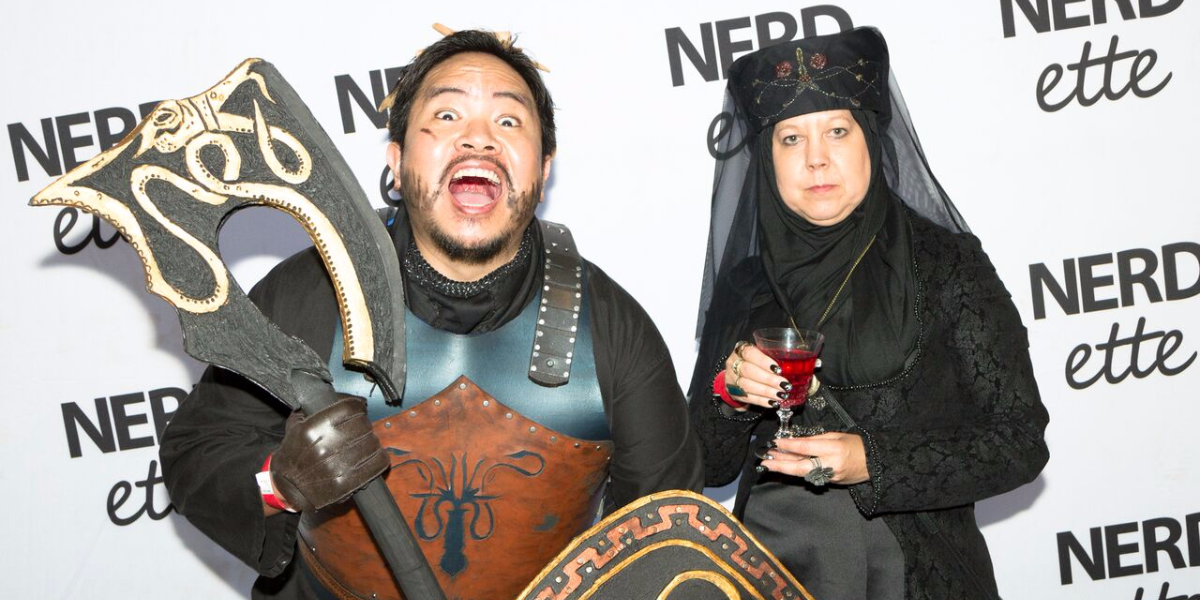

It might seem increasingly difficult to separate fact from fiction these days, but Studio 360 host and author Kurt Andersen says the dilemma is old — and one that’s exacerbated by unique characteristics of America.
Oh, and cosplay and the Internet.
Andersen sat down with Nerdette host Tricia Bobeda to discuss his new book, Fantasyland: How America Went Haywire: A 500-Year History. Andersen is also obsessed with maps, so we put him on the phone with geographical expert Anne Knowles, who told us all to get lost — in the literal sense.
Below are highlights from the conversation.
Americans have always been skeptical
Tricia Bobeda: Some people think that maybe America has recently gone crazy, but your argument is that we’ve always been crazy.
Kurt Andersen: Well my argument is that the iffiness about factual reality has always been there. And it’s always been in balance with the things that tamp it down and keep us on track — experts who actually know things, scholarship that actually means something, science that actually tells you a version and, in my view, a really important version of the truth.
In the last few years and decades, our American habit for “truthiness” — and the American habit for believing whatever you want because you feel it’s true — has gotten a little bit out of control. The Trump administration and Donald Trump did not create this. He and they just exploited an overripe part of the American character to take over the government.
America’s unique contributing factors
Bobeda: What makes Americans particularly susceptible to this?
Andersen: Well, a bunch of things. We created this country out of scratch, like writing a novel or writing a play. It was a blank slate. A big part of the white founders of America were an extreme bunch of religious zealots whose Protestant religious zealotry was all about saying, “You’re not the boss of me,” and “I can believe whatever I want,” and “I can take the Bible and make of it whatever I will.” Those founding aspects of the American character led us to be different than the rest of what became known as the developed world.
And the sheer size of America has allowed us also to indulge our extreme individualism, because if we don’t like where we are, we can go and make up a new colony or a new town or a new place where we can gather together people who either allow us to believe the wacky things we believe or where nobody will mind if we pursue our wacky beliefs.
Bobeda: And now the Internet has meant that if you felt alone in your wacky beliefs, you’ve got your tribe. You can find them quickly.
Andersen: Yes, and recruit more and create your alternate reality that looks real — as real as any reality ever has.
How pop-culture fantasy can help degrade factual reality
Bobeda: I’ll tell you, Kurt, in the last month I have on three separate occasions been dressed up as various characters at various events.
Andersen: You cosplayer you! No, I’m not saying that people who dress up as fantastical, fictional characters because it’s fun are necessarily going to be the people who are going to have 28 AR-15 semi-automatic weapons and that it’s all the same.
But, this make-believe-y world that makes all truth and reality and nonfiction and fiction fungible, it’s something to look at. Once you step back and see it as all part of a fantasyland, you begin seeing that the benign parts can be enablers of the toxic parts, of the not-so-benign parts.
We can all have fun at comic con or Burning Man or at whatever version of reality we want — in our churches, fine — but once reality itself is being defined by virtue of whatever the most people agree it is, that’s tough. That’s rough.

‘Majority-rules’ reality
Andersen: There are lot of things about the American character and the American experience that are great. But when carried too far or taken to the extreme, when not moderated by prudence and expertise, Americans have always tended to reject. “Why, I don’t need you, Mr. Expert. I can figure it out on my own.”
And as you say, when that kind of alternate-reality tribalism is enabled to a previously unimaginable degree by the Internet, it becomes tough for any gatekeeper of any kind to say, “Hey, hold on, that’s not true.” Because look, all these people say it is true.
The president has said that very thing about some of the large falsehoods that he has proposed. For instance: several million illegal voters who didn’t vote for him in the last presidential election. When told by journalists that that’s not true, his response is that a lot of people believe it, as though reality itself is a majority-rules thing. That’s where we are, and that is the problematic part of what I’m talking about.
This interview has been edited for clarity and brevity. Click the ‘play’ button above to listen to the entire podcast, which was produced and edited for the web by Justin Bull.
